Visualizing data-driven climate futures
A 2031 broadcast from the fictional future news source, Global News Network. This newscast covers Hawai’i and San Francisco, two nation-states who have surfaced in light of the disbanding of the federal government, and imagines what could happen if politicians continually turn to bandaid solutions that prioritize their own re-election over addressing the climate crisis. This project was completed as part of a Speculative Design studio in the Transdisciplinary Design program, and won First Place for the Emerging Designer and People’s Choice award at the Primer 2020 conference.
Role: research, worldbuilding, design
Collaborators: Darcy Keester, Vaidehi Supatkar, Mohammad Sial
Timeline: January 2020—May 2020
OVERVIEW
The way that we frame climate change is dooming our efforts to reverse it. We instinctively see the climate crisis as an external problem and we can hardly imagine different ways of living. Additionally, citizens have become increasingly unhappy with short-termism politics that rarely create meaningful change. This project explores how entangled societal factors—politics, economics, culture— can become the material for experimentation and innovation.
A 2031 newscast from the Global News Network reports on two nation-states that have emerged from a tumultuous upheaval of American politics due to the rapid escalation of climate issues. This upheaval is paving the way for the prioritization of data-driven, seemingly objective truths to drive the election of a new kind of political leader. People in Hawai'i no longer trust themselves to solve the urgent issues of the climate crisis and are planning to elect a “bioborg”, an intelligent species of tree, named LAKA, on her campaign promise to put Climate First. In San Francisco, an “artifactual intelligence” named S.A.M. is making local, emergency decisions based on data gathered from years of citizens actions, which people believe represents the people's true will.
These unexpected conditions highlight critical aspects of the climate crisis: truth, time, and accountability. With long term challenges like climate change brought to the forefront, how might government systems better reflect changing citizen values? How might we imagine what these futures could look like, to look critically at our actions in the present?
RESEARCH & WORLDBUILDING
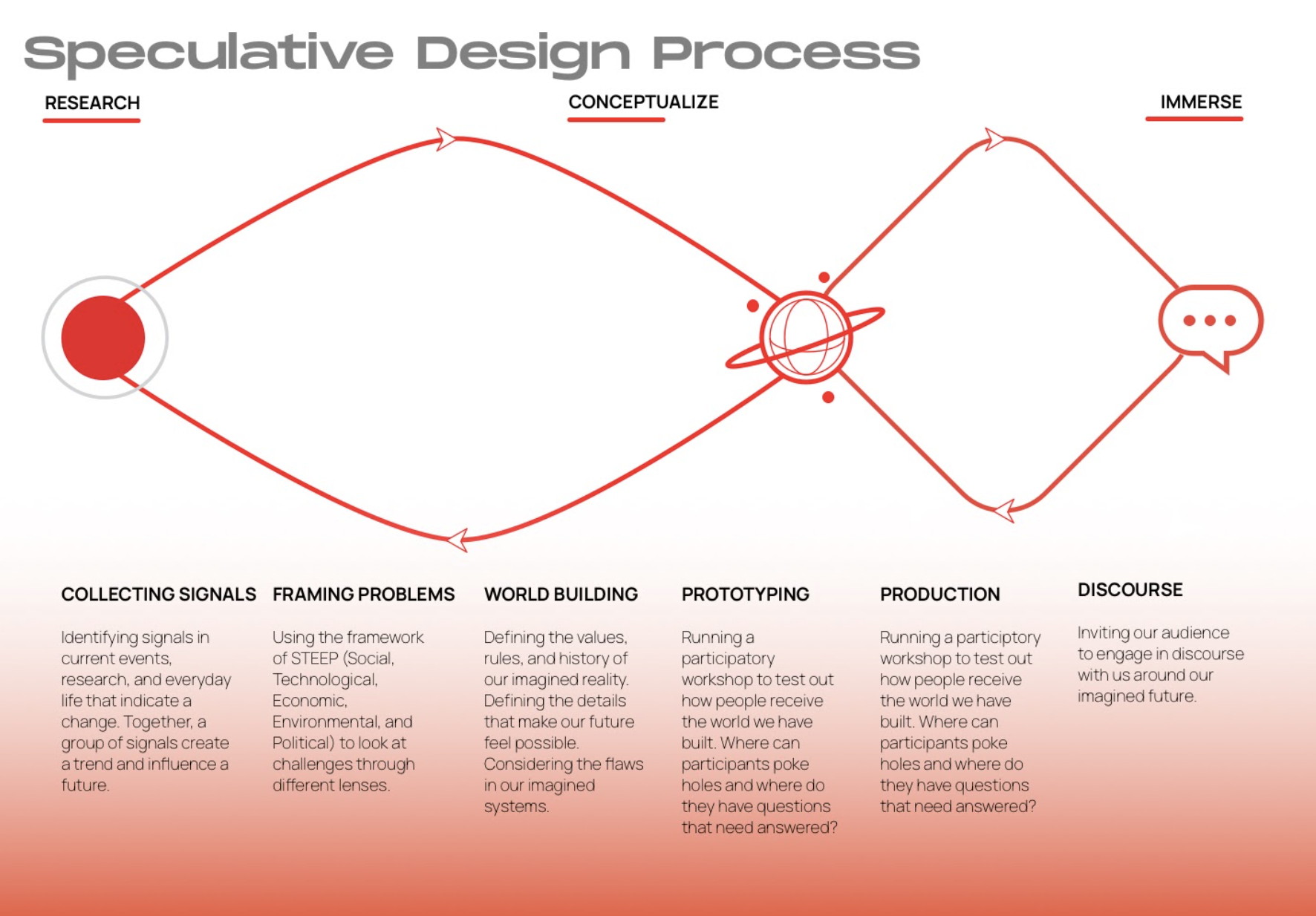
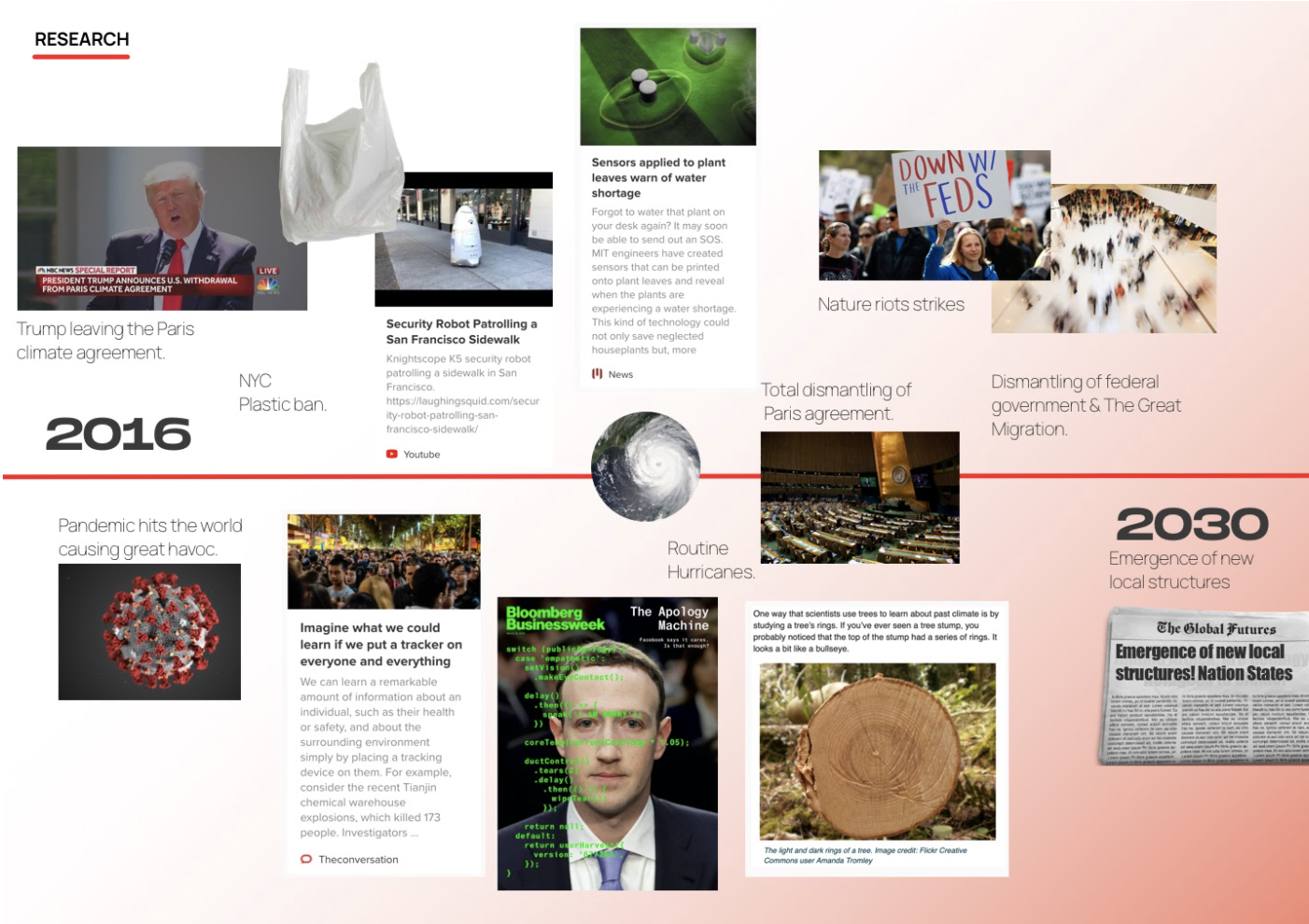
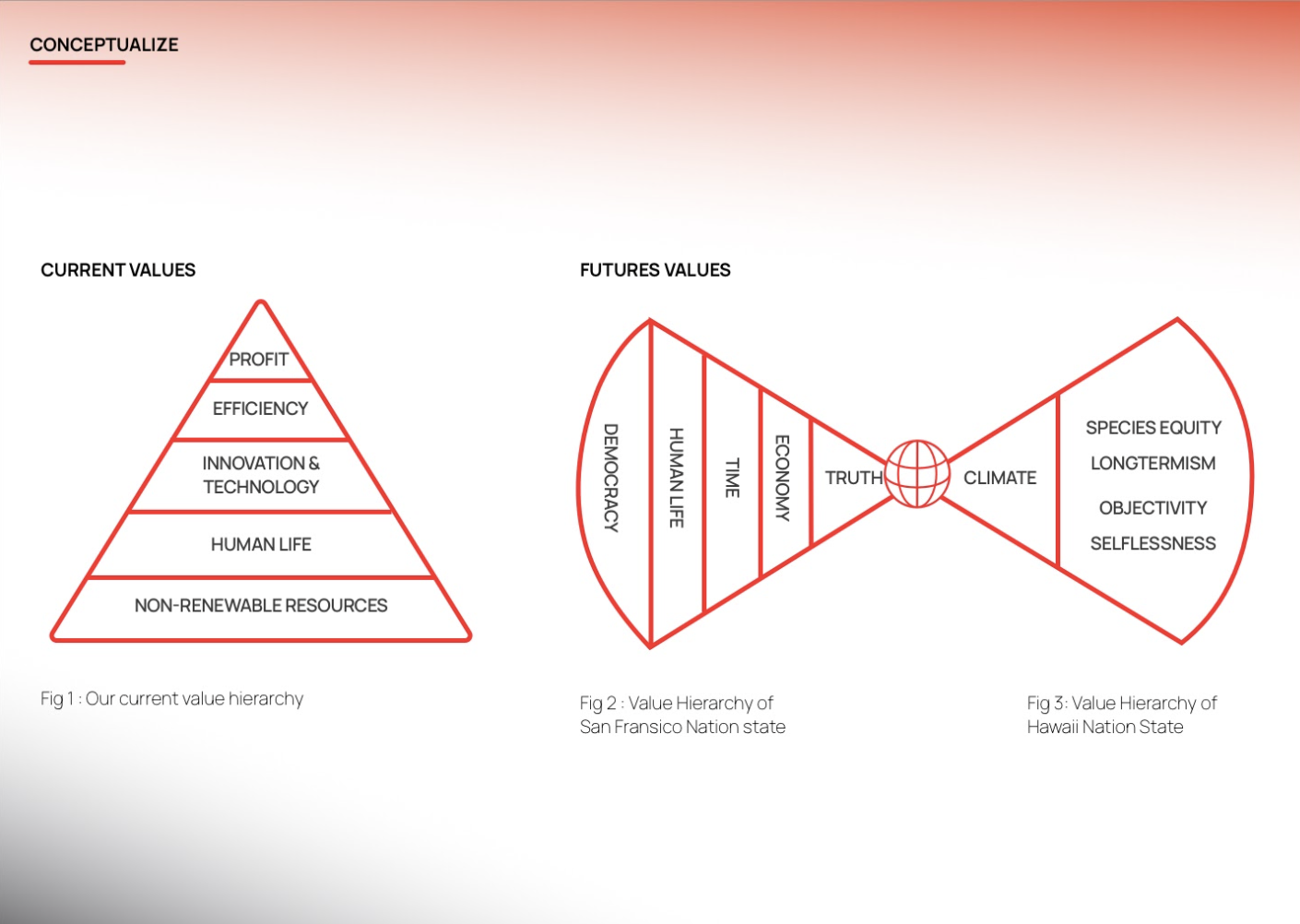
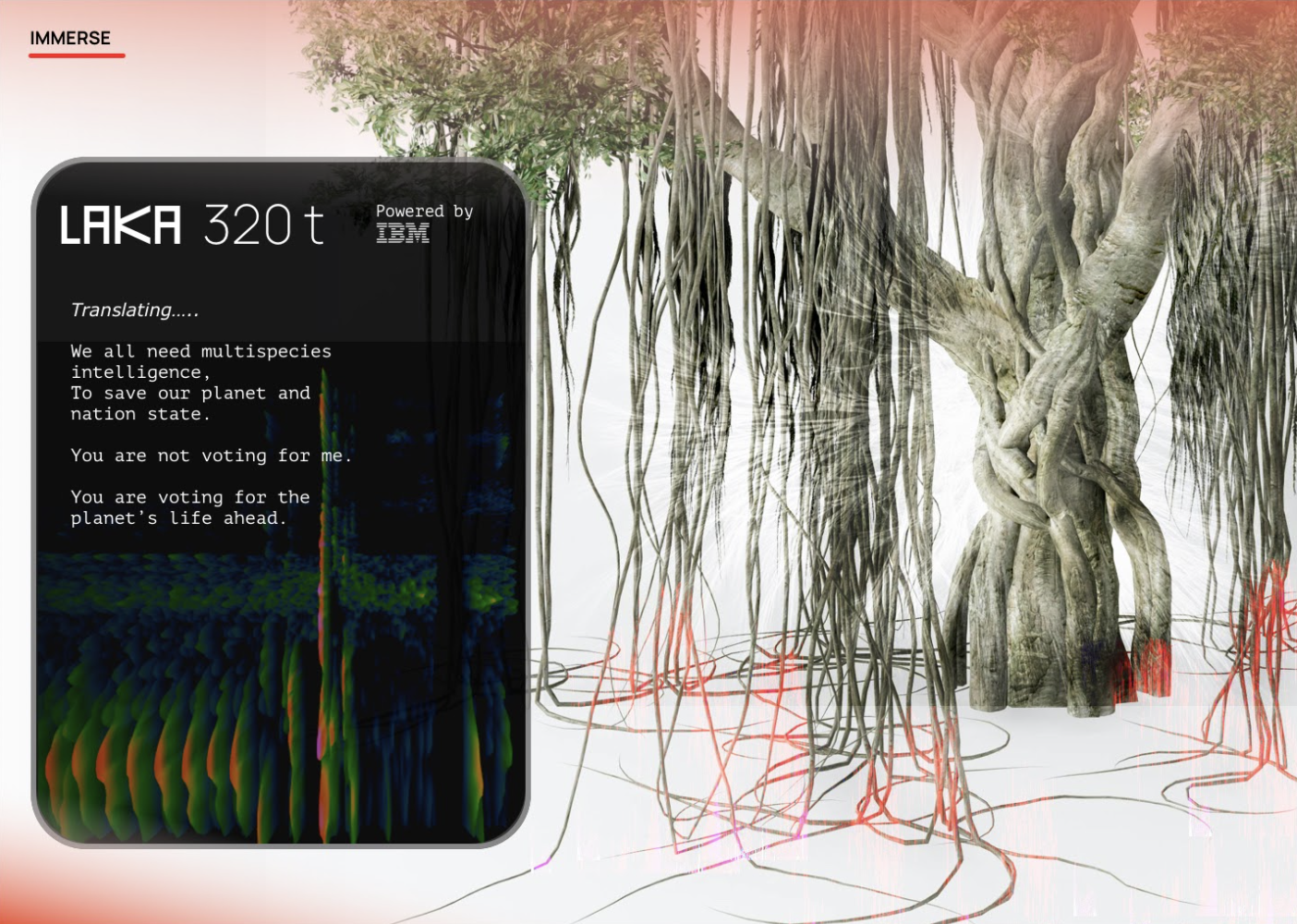
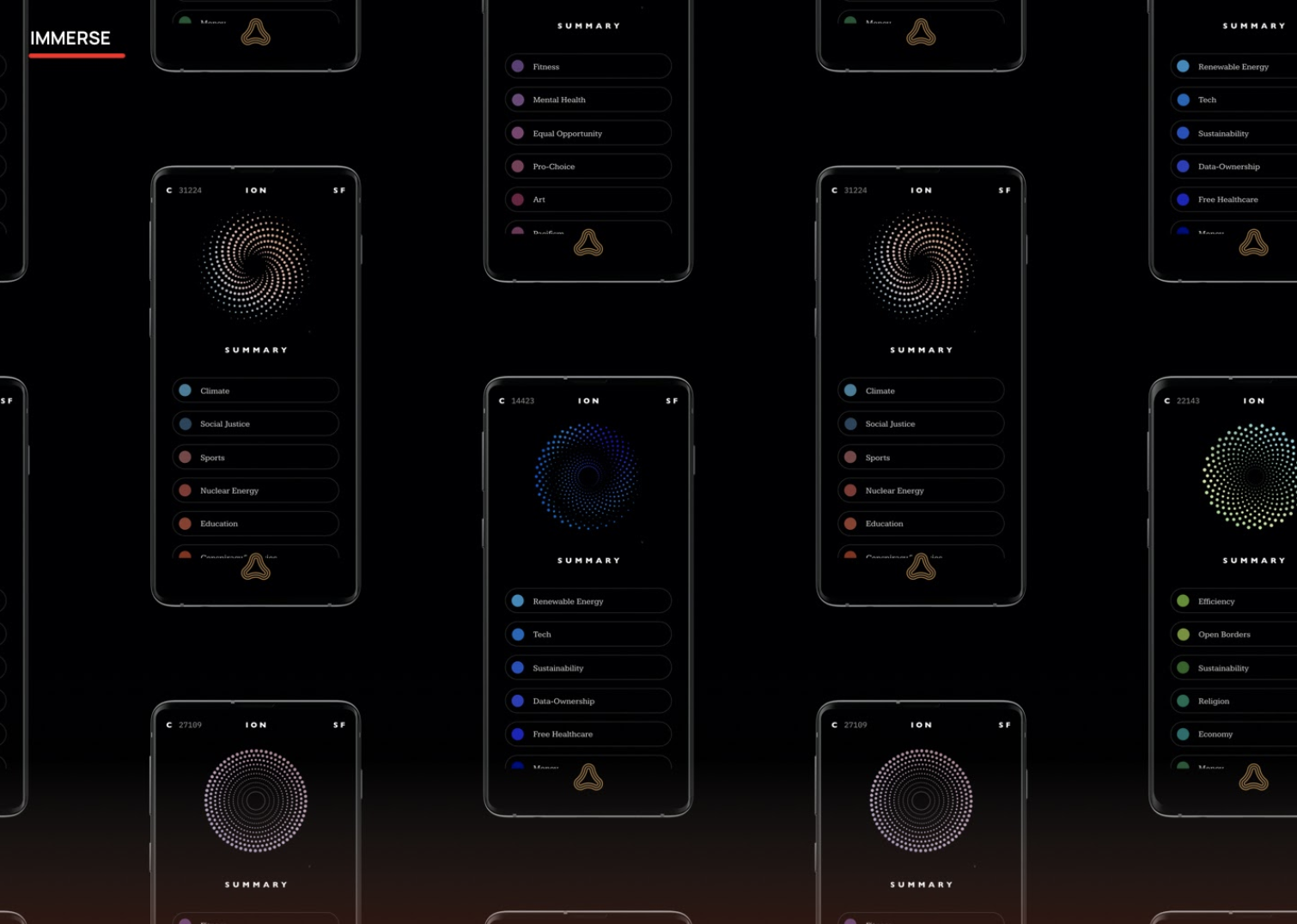
PARTICIPATORY WORKSHOP
As part of our worldbuilding process, we wanted to test our hypothesis of differing values systems. In a 1-hour workshop, we facilitated 21 participants in small groups to create a set of values based on a future of low energy.
Screenshot from virtual values workshop in a small breakout group. We asked participants to select items in their homes that would represent the values they’d like to see in this future.




